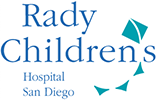Dehydration
What Is Dehydration?
Dehydration is when there is not enough water in the body.
What Causes Dehydration?
Dehydration in children usually is caused by vomiting, diarrhea, or both. It also can happen when children don't want to drink because they have mouth sores or a sore throat. Kids also can get dehydrated in hot weather or when they are very active.
What Are the Signs & Symptoms of Dehydration?
Signs of dehydration include:
- a dry or sticky mouth
- few or no tears when crying
- eyes that look sunken
- in babies, the soft spot (fontanelle) on top of the head looks sunken
- peeing less or fewer wet diapers than usual
- crankiness
- drowsiness or dizziness
How Is Dehydration Treated?
Treatment for dehydration depends on how severe it is. Kids with mild dehydration can get extra liquids at home. Kids with more severe dehydration may need treatment in the ER or hospital.
Mild dehydration is treated with oral (by mouth) rehydration. This usually includes giving oral rehydration solution (such as Pedialyte, Enfalyte, or a store brand). It has the right amounts of water, sugar, and salt to help with dehydration. You can buy it without a prescription at drugstores or supermarkets. If you can’t get oral rehydration solution, talk to your doctor. Other liquids can help with dehydration.
If your child has mild dehydration and your doctor says it’s OK to start treatment at home:
- Give your child small sips of oral rehydration solution as often as possible. For babies, give about 1–2 teaspoons (5–10 milliliters) every few minutes. For older kids, give about 1–2 tablespoons (15–30 milliliters) every few minutes.
- Babies can continue to breastfeed or take formula, as long as they are not vomiting repeatedly.
- Older children also can have electrolyte ice pops.
- Kids can keep eating their regular diet, unless the doctor recommends a change. They may not want to eat at first but as long they are drinking, it’s OK if they aren’t eating much solid foods.
- As your child starts to feel better and has a better appetite, you can give less oral rehydration solution and more of their usual food and drink.
- Don't give babies plain water instead of oral rehydration solution. It doesn't have the right nutrients for babies with dehydration.
- Don't give sports drinks, soda, or full-strength (undiluted) juice. They have too much sugar and can make some symptoms worse.
- Don’t give medicines for diarrhea or vomiting unless the doctor recommends it.
When Should I Call the Doctor?
Call your doctor if your child:
- won't take anything to drink for more than a few hours
- is under 1 year old and is drinking only oral rehydration solution (no breast milk or formula) for 24 hours
- vomits more than a few times in 24 hours
- has vomit that's bright green, red, or brown
- hasn’t started eating some food within 3–4 days
- has signs of dehydration like a dry mouth, peeing less often (or fewer wet diapers in babies), fewer tears, or sunken soft spot (in babies)
- is cranky, fussy, or not very active
- doesn’t seem to be getting better
Go to the ER if your child is very sleepy or isn’t responding to you.
How Can We Prevent Dehydration?
Whenever your child gets sick, give extra liquids or oral rehydration solution. Give small amounts often, especially if your child is vomiting.
Kids should drink often during hot weather. Those who play sports or are very physically active should drink extra liquids beforehand, and then take regular drink breaks (about every 20 minutes) during the activity.
- What to Do About Dehydration
- Sports Drinks and Energy Drinks
- Kids & Sports (Topic Center)
- Summer Safety (Topic Center)
- Vomiting
- Heat Illness
- When and Where to Get Medical Care
- Fever (High Temperature) In Kids

© 1995- The Nemours Foundation. KidsHealth® is a registered trademark of The Nemours Foundation. All rights reserved.
Images sourced by The Nemours Foundation and Getty Images.
